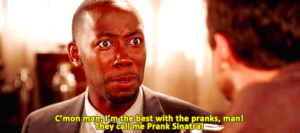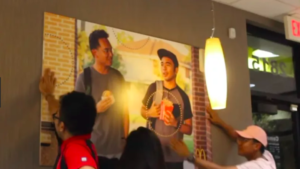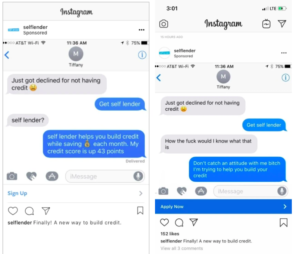I don’t know about you, but I’ve never been much of a prankster. Don’t get me wrong; I’m like really funny (you can ask my mom), but I don’t do practical jokes. I’m not like Winston from New Girl:
Maybe it’s because I know I’d probably botch the execution, but I’ve never really understood the point of a prank. But I’ve noticed an interesting trend lately. People have been pranking brands and the brands are responding in a really positive way.
Two teens in Texas recently put up a poster of themselves in their local McDonalds and no one noticed… for more than a month!
The two boys noticed that the fast food restaurant didn’t have any posters that featured Asians, so they decided to make one and make themselves the stars of it. Their tweet about the prank went viral and, soon enough, they hit the peak level of viral: they went on The Ellen Show. But Ellen had her own surprise: McDonald’s gave each teen $25,000 because they are going to be featured in an upcoming (official) marketing campaign.
One Twitter user recently decided to make a spoof of an ad by a credit-building app. (Warning: some language may not be appropriate for all blog readers. Discretion is advised).
But the joke was on him, because other social media users thought it was a real ad! This too went viral and made its way back to the company, Self Lender. Rather than getting upset, they loved it. In fact, they loved it so much that they offered the guy a job in their marketing department!
These brands are pretty different in terms of industry and size, but both had similarly generous reactions to silly situations. This is a terrific example of how brand marketing isn’t always campaign-based. Opportunities present themselves and the right reaction can mean some seriously positive brand awareness. People on social media clearly loved the original viral pieces of content, but also loved the brand’s actions in response.
Kudos to McDonald’s and Self Lender for not being afraid to embrace the viral humor!




6 Responses to Faking It Has Its Benefits